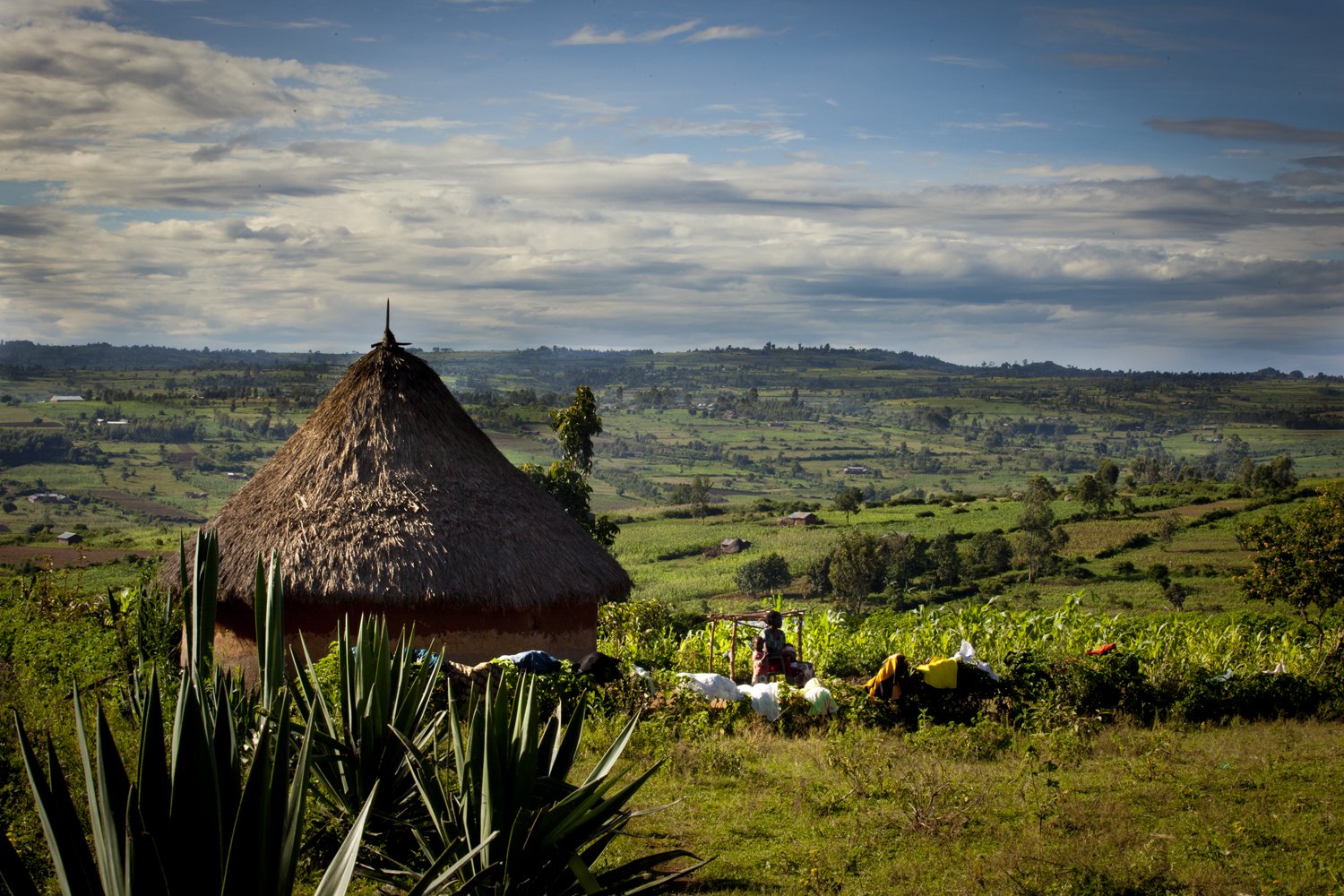As global coronavirus cases continue to rise and tense economic debates fill the news and social media echo-chambers I would like to thank you for taking a moment to consider the impacts COVID-19 and a global recession will have on another continent (or maybe it hits closer to home). As my colleague and friend, Tom Kibet, Managing Director of Nuru Social Enterprises, messaged me today from Kenya to Maryland: “Being together is what matters, staying strong and positive until the storm passes.” So, thank you all for reading this update and standing in solidarity with Nuru, our farmers, and their families.
COVID-19 & The Present Situation
A food crisis of access, not availability, is slowly emerging across Sub-Saharan Africa, not all that dissimilar to the challenges faced in the U.S. over the past weeks. For example, the sale of agricultural commodities like maize, rice, and legumes have stalled in rural Ethiopia and Kenya due to COVID-19 public safety restrictions. This is happening at the very moment rural business enterprises and cooperatives were aiming to sell late 2019 harvests at peak prices. Governments have been unsure of how to provide updated guidance for domestic commerce. This makes access to seeds and fertilizers challenging as rainy seasons in west and east Africa are beginning now, and timely planting is a necessity. Moreover, looming global price spikes for staple commodities (rice, maize, wheat, soy, etc) are spreading anxiety as they did during SARS, avian influenza, MERS, and Ebola, according to the International Food Policy Research Institute (IFPRI).
As with all negative news these days, the price shocks and impacts on those living on less than $1.90 a day are anticipated to come in waves according to IFPRI. The pain will start in urban centers where manufacturing jobs are lost and many live in unthinkably tight conditions, while constrained domestic supply chains for staples drive the price of food higher and higher. The impacts will spread to rural areas next, where many rural households are already on the fringe of extreme poverty and highly susceptible to the ripple effects of these food system shocks.
“Without social and economic mitigation measures such as fiscal stimulus and expansion of social safety nets, the impact on poverty would be devastating. The [IFPRI] scenario does not consider any such responses, as yet. [Therefore] in addition to the 20% global increase in extreme poverty noted above, the [IFPRI] scenario indicates urban and rural populations in Africa south of the Sahara would suffer most, as 80 million more people would join the ranks of the poor, a 23% increase.” (IFPRI, April 16, 2020)
Nuru’s Response: Keep Fighting for Livelihoods
Nuru International has been working very closely with our local partner organizations (Nuru Nigeria, Nuru Ethiopia, and Nuru Kenya) on a timely and thoughtful response since the early days of the pandemic. Together, we have been collaborating to plan, adapt, and continue to support the farmers, cooperatives, and communities who rely on Nuru services to be in a position to make meaningful choices in the service of their families. It has certainly been a busy time for our farmers and partners, and it is very easy to be consumed by this incredible crisis in our own homes, towns, and communities across the globe.
All Nuru partner organizations are now working remotely, battling through low to no bandwidth, working days and nights to ensure our efforts align to all government social distancing guidelines designed to save lives. In 2018, Nuru began using annual Objectives & Key Results (OKR) frameworks to build towards our desired outcomes and prioritize activities at all levels of our work. As COVID-19 restrictions began to take shape globally, our teams completed a rapid OKR contingency planning exercise. These plans will be monitored and re-prioritized under these dynamic circumstances.
Regardless of challenges like COVID-19, we keep fighting to deliver vital services to farmers in marginalized regions. Nuru Ethiopia has completed 22 new cash crop demonstration plots with local government partners to ensure socially distant farmers can access practical learning experiences for mung bean and groundnut production. Nuru Nigeria is redesigning its training to accommodate small group training and remote learning to include video GAP training and phone-based extension for soybean and groundnut production. Nuru Kenya has redirected transportation resources toward SMS communications and radio campaigns to stay connected to remote farmers and ensure they have the information needed to plant their crops on-time with the rains.
These efforts, and many others, led by dedicated professionals and locals are what groups like IFPRI say is needed to head off “a potentially massive increase in global poverty and hunger.” Though IFPRI’s call may be to governments and multilateral institutions, it is always the local community and local leaders that take the quickest action to stem the tide of suffering. Nuru Nigeria, Nuru Ethiopia, and Nuru Kenya represent their communities, work for their communities, and will continue to protect their communities from COVID-19 and an inevitable economic recession. We are in this together and must stay strong.
Thank you again for your support and solidarity.


